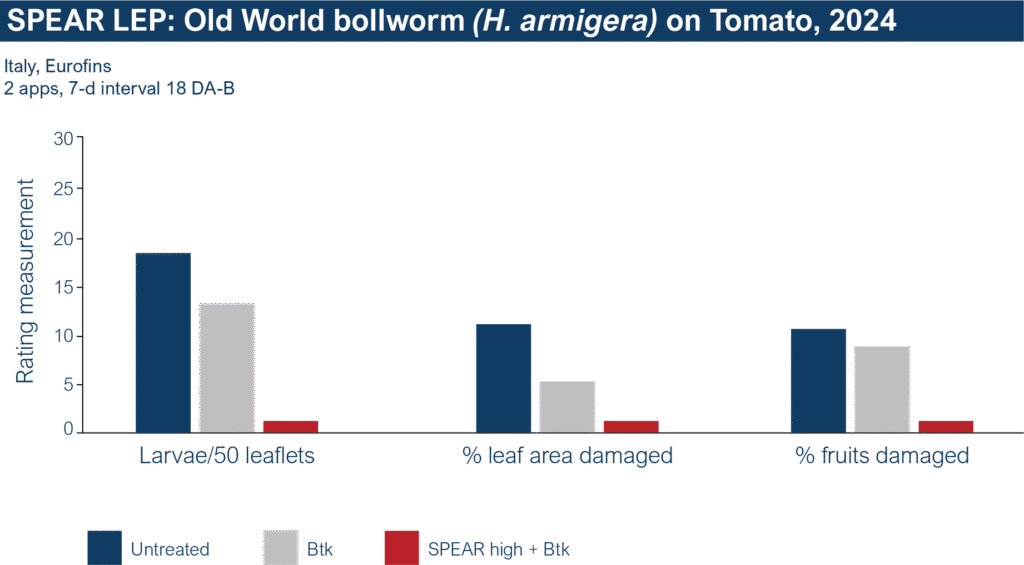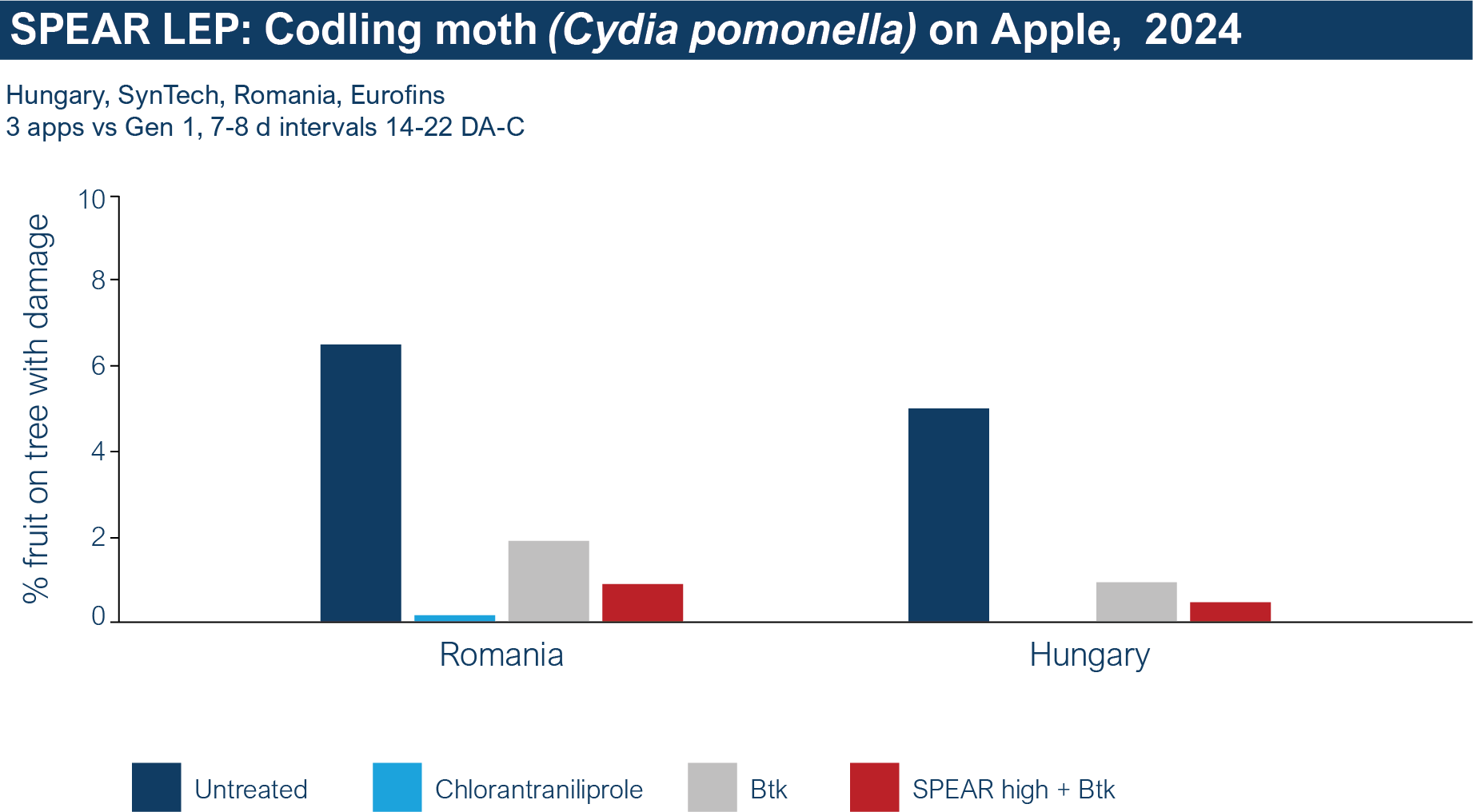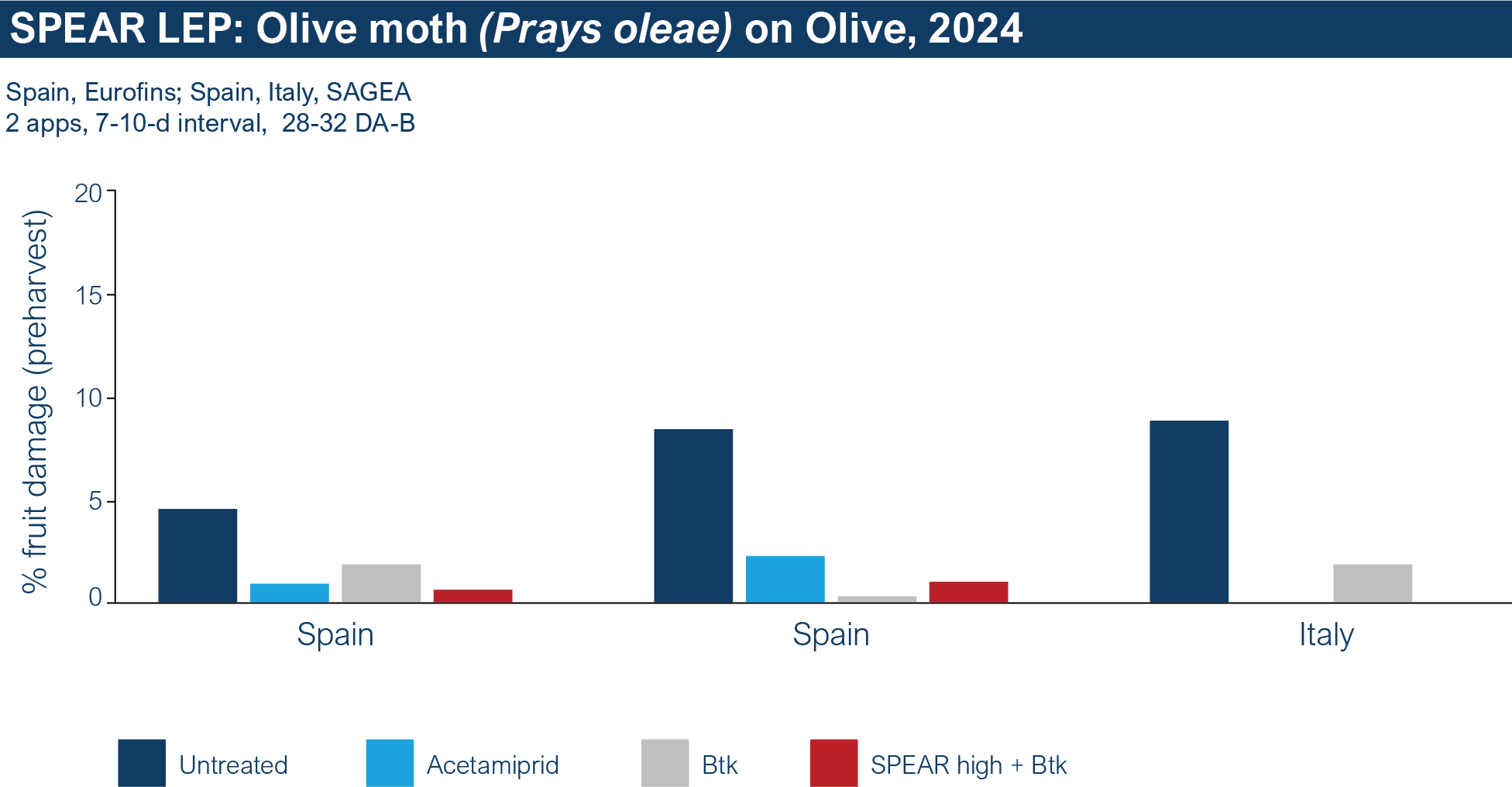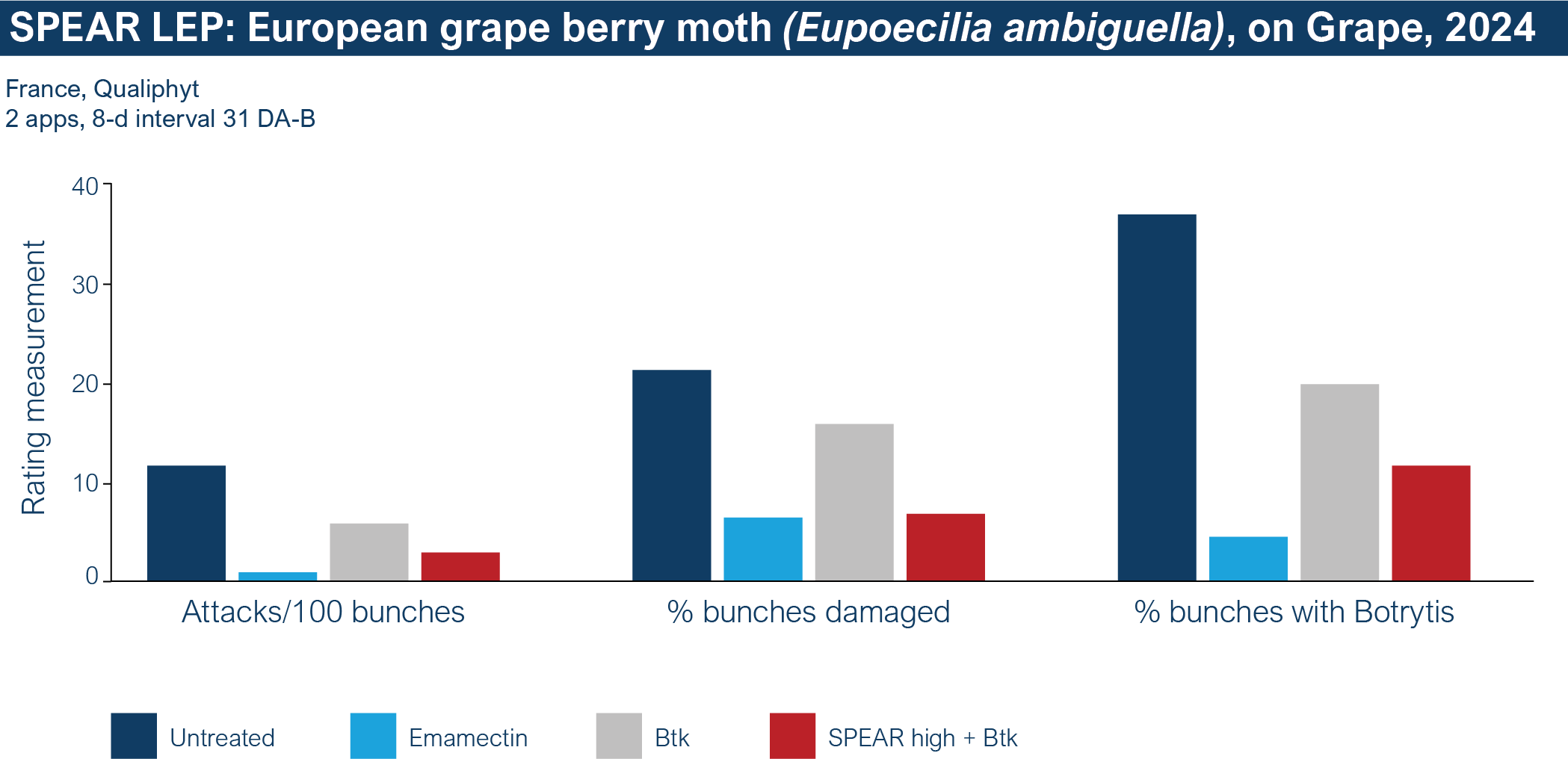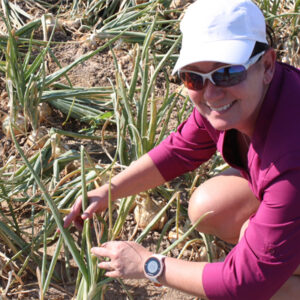For Dawn Calibeo, the opportunity to bring a new active ingredient to the crop protection market is a career-defining moment. “To bring a new active ingredient to market is one of the best feelings in the entire world,” she says. “But to bring two new active ingredients within five years, that is absolutely game-changing. It’s never been done.”
With global agriculture grappling with $70 billion in annual crop losses due to pests and increasing resistance to traditional synthetics, Dawn and the team at Vestaron Crop Protection are on a mission to provide the novel and effective solutions that growers need right now. In her role as Vice-President of Field Development, she and her colleagues are trialing and proving the efficacy of their growing portfolio of bioinsecticides. This includes SPEAR® LEP, commercialized in the U.S in 2020, and BASINTM FLEX, which hits the market in 2025.
In 2024, SPEAR® LEP and BASINTM FLEX demonstrated global efficacy in third-party trials, reinforcing their growing leadership role in sustainable crop protection. Key findings include:
Peptide Technology Platform
At the heart of this revolution is the proprietary technology platform Vestaron is using to rapidly develop peptide-based biologicals, derived from the venom of spiders and other creatures, which offer a sustainable alternative to traditional pesticides. Peptides provide high target specificity, meaning they’re tough on pests but gentle on pollinators, beneficial insects, and workers, while being fully biodegradable, breaking down into amino acids post-use.
Dawn is proud to be part of a team driving a transformative shift, leading a bold new conversation about the power of peptides. At Biopesticides Europe June 4-5 in Madrid, Spain, Dawn will present updates on the company’s successful expansion into the EU (two years ahead of schedule), as well as regulatory wins in Europe. And in August, Chief Scientific Officer, Bob Kennedy, will host a symposium on peptide technology in crop protection at the American Chemical Society Fall Meetings in Washington, DC.
Trailblazing a Regulatory Pathway for Biologicals
One of the team’s most significant achievements is regulatory success in Europe, a region known for its rigorous standards.
Most biological companies, even some majors, haven’t had the success we’ve had progressing through the regulatory process in Europe,”
~ Dawn Calibeo, Vice President of Field Development, Vestaron
Vestaron secured four Emergency Use Authorizations (EUAs) between 2024 and 2025, a milestone that positions them as leaders in creating a new regulatory pathway for biologicals.
“We’ve made a significant upfront investment in time and resources to secure robust labels from the start,” she says.
Unlike many small startups that launch with a one crop-one pest approach, her team conducted extensive trials across multiple crops and pests in just two seasons. Dan Peck, Director of International Field Development, although based in the US, managed 120 European trials a year himself in addition to other responsibilities, a feat she describes as “unheard of” in field development. Dawn believes this speaks to the unmatched level of dedication and passion the “small but mighty” team has displayed at every turn. Additionally, they invested in local consultants in Europe, fostered relationships with grower associations, and conducted extra demo trials to meet EU requirements.
“Every EUA required us to do additional work, more commercial-focused demos,” Dawn notes. “We had someone on the ground to help them apply it for the first time and understand the data, to answer questions.”
This strategy has not only secured approvals but also built trust with regulators and grower associations on the ground. While the rapid pace of development, testing, and commercialization has set a new standard for the industry, Vestaron understands the value of partnerships and collaboration.
A Deep Pipeline
“We’ve got an incredibly deep pipeline, and it’s going to take a large amount of resources to fully exploit it,” she says. To accelerate this process, the team is exploring partnerships with producers, manufacturers, distributors, and research institutions. “We’re actively working with several partners to get these great products to the growers who need them,” she says, highlighting the global interest in their technology. Grower support groups across Europe are advocating for faster regulatory approvals, eager to integrate these solutions into their programs.
For Dawn, the work is deeply personal. Having started her career in public health, she finds a similar sense of purpose in agriculture. “I thought I’d miss the altruism of human health, but it’s still here in a different way,” she says. “You’re feeding people, you’re feeding the world. That’s a great feeling.”
MEDIA CONTACTS:
Ben Cicora, SVP Sales & Marketing • 970.443.9220 • bcicora@vestaron.com
Steve Betz, VP Communications • (515).707.6096 • sbetz@vestaron.com
